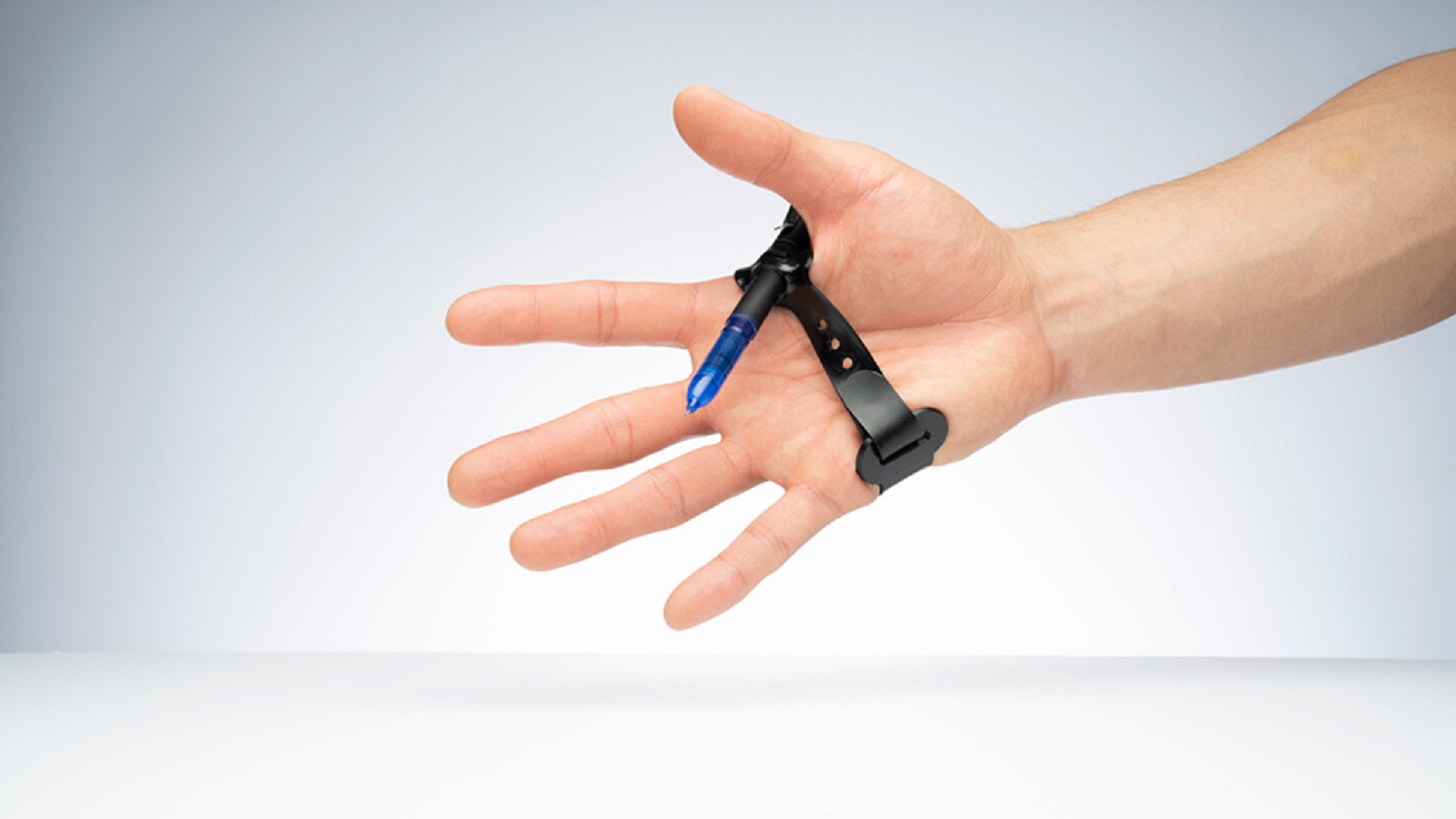Problem
Using a pen is important in everyday life. But while many take it for granted, some veterans and active duty service members have afflictions that compromise grip strength, motor skills, or hand dexterity — limiting their ability to hold pens.
Time is extremely valuable in clinical settings. In addition to seeing and evaluating each patient, healthcare staff must also design unique splints to solve each individual’s unique challenges. With the demands of a fast-paced hospital setting, the team needed a reliable, quick, and simple way to make customized splints with a flexible material. To solve this challenge, the team turned to additive manufacturing technologies to speed up production times and allow for shortened iterations and design cycles.
3D printing with TPU material offered the fastest and most economical way to design, customize, and fabricate these splints — with the flexible qualities of TPU promising the most impactful solution for the patient. However, 3D printing TPU — a notoriously tricky material to print — proved to be more difficult than anticipated. The team struggled with finding a reliable solution that delivered high-quality prints every time.
To assist these patients, the Assistive Technology team sought out to design and fabricate a stylus holder — designed as a wrist strap with a slot — to help patients securely hold a writing implement, stylus, or similar device.
Solution
The Central Virginia VA Healthcare System has used Markforged composite printers to successfully print rigid prosthetics with Onyx material, a Nylon filled with micro carbon fibers.
“Markforged technology has given us the capability to successfully collaborate with medical professionals and veterans to deliver a high-quality solution,” said Brian Burkhardt, Clinical Rehabilitation Engineer. “These printers just work, and enable us to deliver an elegant, high-quality end product for our patients.”
With the prior history of working with Markforged technology, Brian and team made the decision to introduce Smooth TPU 95A into their practice. They also purchased an Onyx Pro 3D printer for this specific application.
Implementation
The capability to print with Smooth TPU 95A enabled the team to move the project forward quickly and efficiently. The stylus holder, designed as a wrist strap with a slot to help veterans with limited hand dexterity to securely hold a writing implement, is a design that takes advantage of the benefits of Smooth TPU 95A.
From validating the design to moving into custom production, they were able to tailor a unique design for each individual to provide an impactful end-use product. The engineers at the Assistive Technology team work with occupational therapists to design customized splints for their patients that work — granting them the ability to grip pens, pencils, and styluses.
With the combination of The Digital Forge’s hardware, software and materials, the team continues to use this part for different patients with similar needs, since they can quickly iterate to find a design that works for an individual patient and then scale to other patients by making tweaks to the initial design. Quick iterations and custom prints that were difficult with traditional manufacturing methods are now simple to execute and reliably deliver successful, high-quality TPU prints.
Outcome
Moving forward, the Assistive Technology team plans to utilize Smooth TPU 95A for other applications within their therapeutic treatments. Currently, the VA is in the process of trying to place a catalog of these designs on the NIH 3D Print Exchange to release them to the public so they are available for anyone to download and print them to improve their quality of life.

